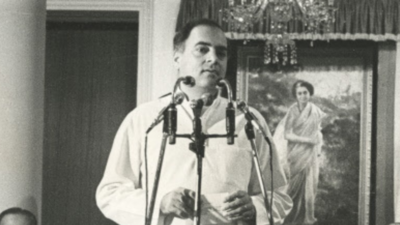Sam Norton would leave the door to his lab inside the Rita Liddy Hollings Science Center open while developing what would eventually become Heron Farms , the world's first indoor vertical saltwater farm. A College of Charleston student at the time, he did so to elicit feedback that helped him launch the company, which landed him on the Forbes 30 Under 30 food list in 2021. That experience and a desire to inspire students at his alma mater are driving Norton’s latest venture, OpenSTEM .
If you’re roaming the halls of the science center these days, you’ll spot the company’s handiwork: what looks like a vending machine filled with growing plants, like Bibb lettuce and basil. They’re managed by students who pitched their ideas to OpenSTEM. Norton and Tanner Hicks, the company's engineer, built the first unit in San Francisco last year.

The machine at College of Charleston, which acts as a small vertical farm, is the first example of what Norton hopes will be many automated agricultural technology units on campuses across the country. OpenSTEM aims to “bring food R&D into the public sphere,” Norton said. “It’s meant to be very low-risk research for these students.
” That can be hard to come by, Norton said from experience. Students are often able to assist with existing experiments, but rarely get to launch and lead projects of their own, he said. With OpenSTEM, they can.
The technology has already attracted a cohort of students interested in agriculture, sustainability and STEM (Science, Technology, Engineering and Mathematics), among other topics. One of them is biochemistry major Holden Marchell, who is using OpenSTEM to study how basil responds to mycorrhizal fungi , which helps plants resist drought and diseases and succeed in poor conditions. A sophomore, Marchell said the research is allowing him to build credibility and learn the effects industrialization is having on this essential group of fungi.
“It was just a great way to get started, get some exposure and start building onto something,” Marchell said. “So far I would say that I’ve learned a lot from it.” For the machines to reach other college campuses, they will need financial backing.
OpenSTEM has the potential to be self-funding with screens and product displays for sponsors to promote their brands, Norton said. The state-of-the-art technology could, for instance, help a student study the effects of climate change on tomatoes. A tomato company could support the research, bringing more visibility to its brand name.
Norton hopes this sponsored-study structure could provide a path forward for OpenSTEM. But first, the company will need to accumulate more data from the projects currently in motion at the College of Charleston. Students “want to learn about how the food system works,” Norton said.
“This is meant to be a little training ground.”.
Food

Basil plants are growing inside a hallway machine at College of Charleston. Here’s why.

Heron Farms founder Sam Norton has a new venture that he hopes will land on college campuses nationwide.














